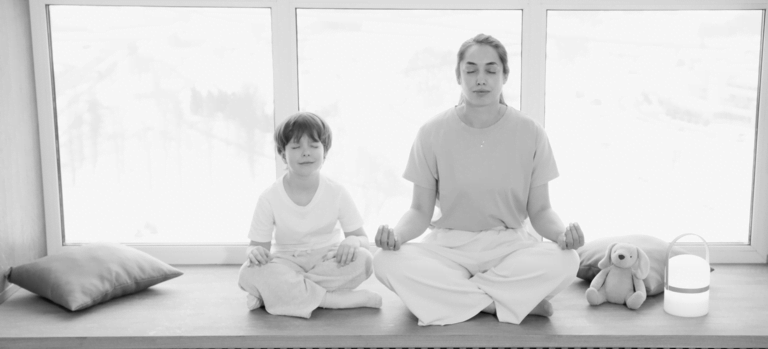What is self-care?
Self-care is an active practice that goes beyond a simple ritualistic approach to health and wellbeing. It focuses on taking proactive steps to promote and enhance all aspects of one’s life – mental, emotional, physical, and spiritual – so as to maintain a healthy balance. This could be anything from getting enough sleep each night, eating nutritious meals, exercising regularly, practicing relaxation and mindfulness techniques, connecting with supportive social networks, trying out new skills, seeking professional help when needed and engaging in creative pursuits.
Self-care is an ongoing process that requires dedication and commitment. It’s important to remember that this practice will look different for everyone as we all have different needs and preferences. Think of it like a garden – it requires attention, regular waterings and occasional weeding to keep it lush and vibrant. Making it a part of your daily routine can really make a positive difference in your life, helping to reduce stress levels, boost moods, foster better mental health, and create healthier habits that can last a lifetime.

Self-care is an important aspect of personal growth and self-improvement
What are the different types of self-care?
1. Physical Self-care
Physical self-care is an important part of looking after your own wellbeing. It involves taking proactive steps to ensure that you are in the best physical health possible, by addressing key aspects such as exercise, nutrition, sleep hygiene, and medical care. Getting sufficient quality sleep is critical for both our mental and physical health; ensuring that we are consuming nutritious food and beverages helps to fuel our bodies; physical exercise is essential for keeping us active and healthy; maintaining good hygiene habits, such as washing our hands regularly, can help keep us from getting sick; and seeking medical care when necessary can prevent many physical ailments.
2. Emotional and Mental Self-Care
Emotional and mental self-care involves nurturing and prioritizing your emotional and mental well-being. It encompasses practices and activities that support your emotional health, help manage stress, enhance self-awareness, and foster resilience. This can include taking time for yourself, setting healthy boundaries with others, engaging in enjoyable activities, and seeking counseling or therapy. It is about respecting your needs and honoring how you feel.
3. Spiritual Self-Care
Spiritual self-care is a practice aimed at nurturing and encouraging spiritual health, growth, and connection with something greater than oneself. It involves intentionally exploring one’s values, purpose for being alive, and sense of meaning in life. It also seeks to cultivate an inner peace and sense of personal fulfillment. Examples of spiritual activities include daily meditation or prayer, attending religious services, journaling, connecting with nature, engaging in service work, listening to uplifting music/podcasts/books, spending time in silence and solitude, practicing yoga or other mindful movement, and talking with a spiritual guide or mentor.
4. Social Self-Care
Social self-care is about taking proactive steps to improve our social environment and relationships with others. It involves intentionally engaging in activities that promote our mental health, such as: reaching out to friends and family; participating in social activities such as clubs or volunteering; engaging in meaningful conversations; setting boundaries with people; expressing yourself authentically; and practicing gratitude. By investing in these types of activities we can experience a greater sense of belonging, connection, and overall well-being.
5. Intellectual Self-Care
Intellectual self-care is essential for any individual looking to enhance their cognitive skills and personal growth. By engaging in activities that stimulate the mind, such as reading, writing or creative pursuits, one can nurture their intellectual curiosity and gain a greater sense of fulfillment. Through this process, individuals can expand their knowledge base, sharpen critical thinking skills, and develop new perspectives on the world. Intellectual self-care can help build self-confidence and create space for meaningful conversations with others.
6. Financial Self-Care
Financial self-care means taking care of your money and making sure you stay in control. It’s about understanding your finances, making smart decisions, and setting yourself up for long-term financial success. It’s also about reducing stress and feeling secure with your finances. By doing things like budgeting, tracking spending, saving money, and investing wisely, you can have peace of mind that you are taking care of yourself financially.
Financial self-care also involves making sure you’re protected against financial loss. This could mean taking out insurance policies, setting up emergency savings accounts, and creating a plan for unexpected expenses. Additionally, it’s important to know your rights when it comes to debt and credit so that you can ensure you are being treated fairly and are not taken advantage of. Taking care of your finances doesn’t have to be complicated or overwhelming. With the right knowledge and resources, you can set yourself up for long-term financial success and security.
7. Environmental Self-Care
Environmental self-care is when you look at how your surroundings affect your own personal growth and happiness. It means creating a space that helps you build positive habits, encourages learning, and supports what is important to you.
Having an environment that boosts your personal growth can give you the motivation and support needed for improving yourself. This could include making sure your physical space is tidy and organized, having books or other materials that inspire you, and focusing on activities that help release stress.
It also means being mindful of how the environment itself impacts your mental health. Aim to be in spaces where you feel safe, respected, and inspired. Pay attention to any negativity coming from people or the surroundings and take action to protect your mental health if needed.
What happens when we lack self-care?
Lack of self-care usually results in burnout. Recognizing the signs of burnout and the need for self-care is crucial for maintaining our overall well-being. Burnout typically occurs when individuals experience excessive and prolonged stress without adequate time for recovery. It can affect various aspects of life, including work, relationships, and personal well-being. While burnout is commonly associated with work-related stress, it can also result from other areas of life, such as caregiving, personal challenges, or demanding responsibilities.
Common signs and symptoms of burnout to look out for:
Physical Exhaustion
Feeling constantly tired, lacking energy, and experiencing frequent headaches, muscle tension, or other physical discomfort.
Emotional Drain
Experiencing a persistent sense of cynicism, irritability, or apathy. Feeling overwhelmed, emotionally drained, or disconnected from others.
Decreased Productivity
Finding it difficult to concentrate, being less efficient, and experiencing a decline in performance or motivation at work or in other areas of life.
Increased Negativity
Having a negative outlook, dwelling on problems, or experiencing a pessimistic mindset. Feeling a lack of satisfaction or accomplishment in your endeavors.
Withdrawal and Isolation
Withdrawing from social interactions, avoiding responsibilities or commitments, and feeling a desire to be alone more often.
Physical Symptoms
Developing physical symptoms like frequent illnesses, changes in appetite or sleep patterns, and increased susceptibility to stress-related ailments.
Emotional Sensitivity
Being more sensitive or reactive to criticism, experiencing mood swings, or having heightened emotional responses to situations.
Neglecting Personal Needs
Prioritizing work or other obligations over personal needs and neglecting activities that bring joy, relaxation, or fulfillment.
Loss of Interest
Losing interest in activities or hobbies that were once enjoyable and not finding pleasure or satisfaction in daily life.
Lack of Balance
Feeling a constant imbalance between work, personal life, and other responsibilities, with little time or energy devoted to taking care of ourselves.
If you notice several of these signs persisting over an extended period, it’s a clear indication that burnout may be setting in. Taking proactive steps to address these symptoms can help prevent further deterioration of your mental, emotional, and physical well-being.
It’s important to note that burnout is not a temporary condition that can be solved by taking a short break or vacation. It is a more chronic state that requires significant changes in lifestyle, mindset, and self-caring practices to recover fully.
Barriers to Self-Care
There are several common barriers that can hinder individuals from prioritizing and practicing self-care. These barriers can vary from person to person and may arise from external circumstances, internal factors, or a combination of both. Here are some common barriers:
Busy Lifestyles
Many people lead busy lives with demanding schedules, work responsibilities, and family obligations. Time constraints and the perception of not having enough time can make it challenging to prioritize self-care activities.
Guilt and Self-Worth
Some individuals struggle with feelings of guilt or a sense of unworthiness when it comes to taking care of themselves. They may prioritize the needs of others or feel selfish for investing time and resources in self-care.
Overcommitment and Lack of Boundaries
Overcommitting to work, social obligations, or personal responsibilities can leave little time or energy for self-care. Difficulty setting boundaries and saying no can lead to a continuous cycle of neglecting personal well-being.
External Expectations and Pressure
Societal or cultural expectations, as well as perceived pressure from others, can influence individuals to prioritize external achievements or conform to certain standards, leaving little room for self-care.
Financial Constraints
Limited financial resources or concerns about financial stability can make individuals hesitant to invest in self-care activities or access resources that promote well-being.
Perfectionism and High Standards
A perfectionistic mindset and high self-imposed standards can lead to an intense focus on achievement and productivity, leaving little space for self-care or self-compassion.
Lack of Awareness or Knowledge
Some individuals may not be aware of the importance of self-care or lack knowledge about effective self-care strategies. They may not understand the impact of neglecting self-care on their well-being.
Mental Health Challenges
Mental health issues, such as depression, anxiety, or chronic stress, can make it difficult to prioritize self-care. Symptoms or overwhelming emotions may hinder individuals from engaging in self-care activities.
Lack of Social Support
Limited access to a supportive social network or lack of understanding from others can make it harder to prioritize self-care. A lack of encouragement or resources can contribute to feelings of isolation and make self-care seem more challenging.
Cultural or Gender Norms
Sociocultural factors and gender norms can influence perceptions of self-care. In certain cultures, there may be expectations to prioritize the needs of others over personal well-being, particularly for women.
Overcoming Barriers to Self-Care
Overcoming these barriers to self-care requires self-awareness, self-compassion, and intentional effort. It is important to be aware of yourself and show yourself kindness. This may mean making goals you can reach, setting limits, asking for help from other people, and not believing everything that holds you back. Self-care is not being selfish but taking care of your health and happiness. You have to keep trying to overcome barriers in order to take care of yourself in the best way possible. You can do this with commitment and dedication to yourself.
Consider the following ways to overcome barriers to self-care:
1. Prioritize Self-Care
Recognize the importance of self-care and make it a non-negotiable priority in your life. Shift your mindset to view self-care as essential for your well-being and overall effectiveness in other areas of life.
2. Set Boundaries
Establish clear boundaries and learn to say no when necessary. Communicate your needs to others and advocate for your own well-being. This includes setting limits on work hours, commitments, and obligations that may impede your self-care.
3. Practice Self-Compassion
Let go of guilt and self-judgment associated with taking care of yourself. Remind yourself that self-care is necessary, not selfish. Treat yourself with kindness, understanding, and compassion.
4. Time Management
Assess your schedule and find pockets of time for self-care activities. This may involve reevaluating priorities, delegating tasks, or restructuring your routine to make self-care a regular part of your day.
5. Start Small
Begin with small, achievable self-care activities. It could be as simple as taking a short walk, enjoying a quiet moment of mindfulness, or indulging in a favorite hobby. Starting small allows for consistency and builds momentum.
6. Seek Support
Reach out to family, friends, or support groups for understanding and encouragement. Surround yourself with people who value self-care and can provide support in your journey.
7. Educate Yourself
Learn about self-care practices and explore different techniques that resonate with you. Read books, articles, or listen to podcasts on self-care to gain knowledge and inspiration for incorporating it into your life.
8. Self-Reflection
Engage in self-reflection to identify barriers specific to your situation. Understand the underlying beliefs, fears, or patterns that hinder your self-care. Journaling or seeking professional guidance can aid in this process.
9. Collaborate and Delegate
Recognize that you don’t have to do everything alone. Delegate tasks and responsibilities to others when possible, whether at work or in personal life, to free up time and energy for self-care.
10. Adapt to Your Circumstances
Flexibility is key. Self-care may look different during various phases of life or in different circumstances. Be open to adapting your self-care practices to align with your current situation.
Final thoughts
Self-care is essential for maintaining overall well-being. It’s important to listen to your body and take the time to do things that make you feel good, from getting enough sleep and eating healthy foods to engaging in activities like yoga or meditation that help reduce stress levels. Taking care of yourself can also increase productivity as it boosts energy levels, improves mental clarity, and helps build a more positive outlook on life.
With regular self-care practices such as exercise, relaxation techniques, nutritious meals, adequate restful sleep, social interactions with friends and family members; all of these will contribute positively towards better physical health and psychological wellbeing. So be sure to prioritize self-care in order to lead a healthier lifestyle!












